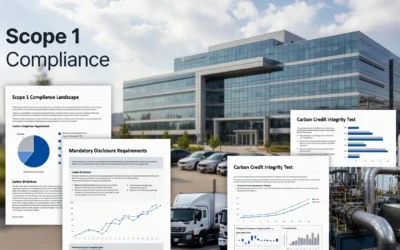The automotive industry is one of the largest consumers of fossil fuels, and as a result, it is also one of the largest emitters of greenhouse gases, particularly carbon dioxide (CO2). To reduce their carbon footprint, many companies in the automotive industry have started buying carbon credits.
Carbon credits are a market-based mechanism that allows companies to buy and sell credits for reducing greenhouse gas emissions. For example, if a company invests in renewable energy or energy efficiency projects that reduce greenhouse gas emissions, it can earn carbon credits. These credits can then be sold to other companies that need them to offset their own emissions.
In addition to carbon credits, the automotive industry can also take advantage of the 45Q tax incentive. This incentive is a federal tax credit that is designed to encourage companies to capture and store carbon dioxide emissions from industrial facilities. The credit is worth up to $50 per metric ton of carbon dioxide that is captured and stored.
To qualify for the 45Q tax incentive, companies in the automotive industry must invest in carbon capture and storage (CCS) technology. CCS technology involves capturing carbon dioxide emissions from industrial facilities and storing them underground, in depleted oil and gas reservoirs, or in other geologic formations.
By buying carbon credits and investing in CCS technology, companies in the automotive industry can reduce their carbon footprint and help combat climate change. These actions can also help companies meet regulatory requirements and demonstrate their commitment to sustainability to consumers and stakeholders.
Dynamic Carbon Credits is a local carbon sequestering company that sets the benchmark for helping businesses pioneer carbon neutral solutions with plant-based technology. Our solution is unique because we utilize one of the only plants that pulls carbon from the air and returns it back to the soil. Due to this effectiveness, we create a high value solution for companies looking for carbon neutral options. We typically provide resources to Fortune 500, large and medium businesses in the United States and internationally. Dynamic Carbon Credits is a team of industry experts in agriculture, government, science, and business who understand what framework needs to be in place to correctly validate carbon offset projects. We are proud to be a leading benchmark in this industry.
Let’s Work Together!
Dynamic Carbon Credits is ready to show you how to solve your most pressing business challenges. Contact us today and begin seeing the results.





